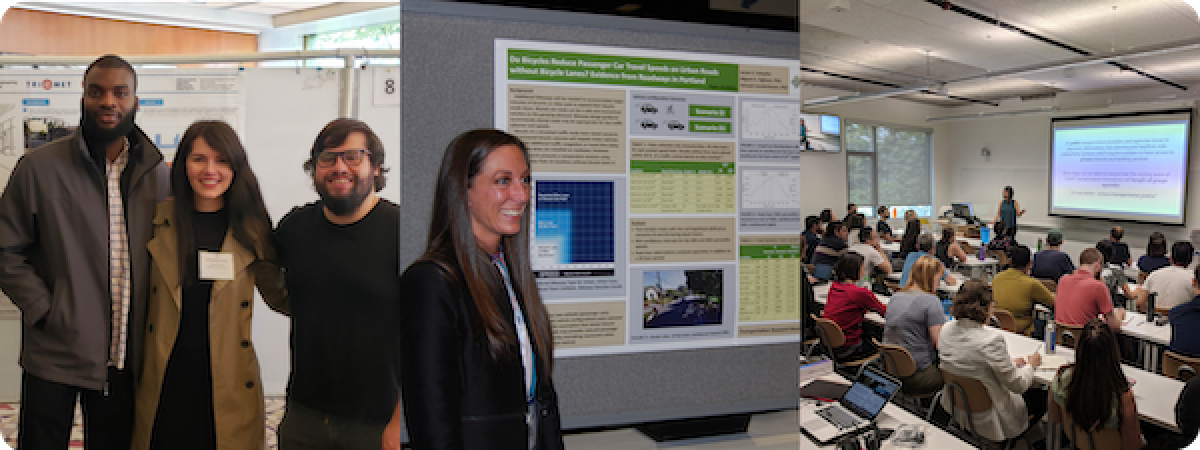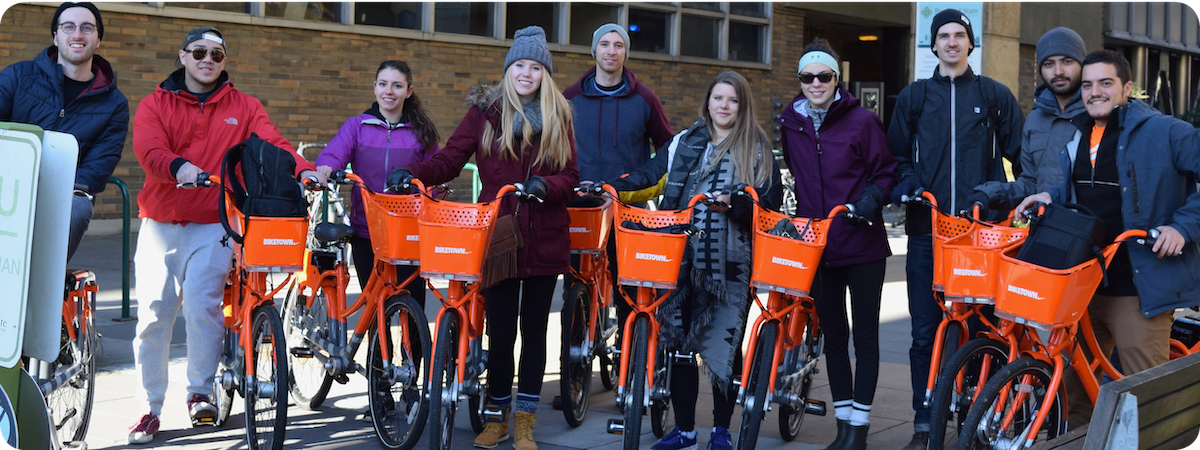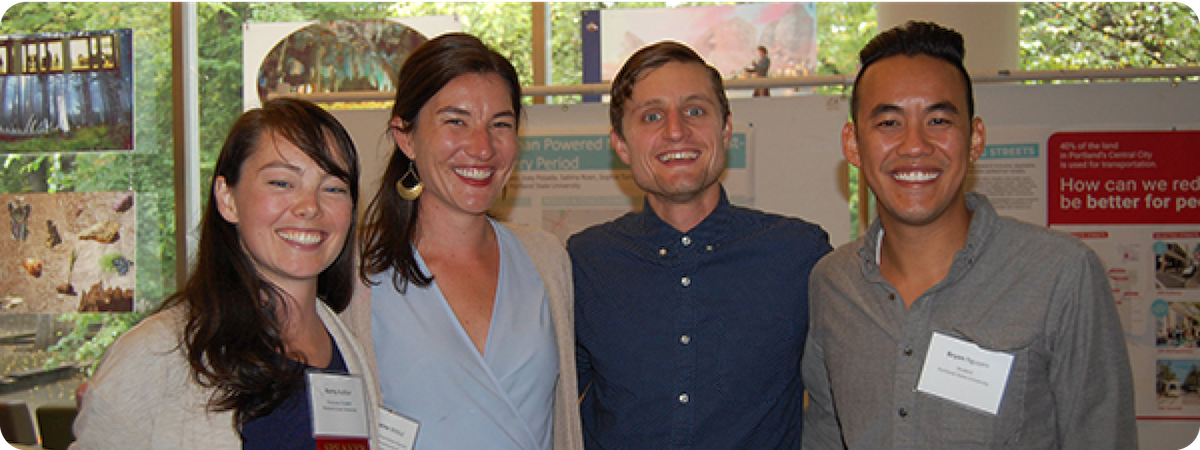 Jennifer Dill, PhD
Jennifer Dill, PhD
Director
Professor, Nohad A. Toulan School of Urban Studies and Planning
503-725-5173 | jdill@pdx.edu
https://jenniferdill.net/
TREC Researcher Profile
Dr. Jennifer Dill is a professor in the Nohad A. Toulan School of Urban Studies and Planning at Portland State University (PSU) and Director of the Transportation Research and Education Center (TREC) at PSU. Dr. Dill is also the editor-in-chief of the Transportation Research Record.
Professor Dill is an internationally known scholar researching the relationships between transportation, land use, health and the environment, focusing on active transportation. Before entering academia, Professor Dill worked as an environmental and transportation planner in California. That experience motivates her teaching and research, which aims to inform practice and policy. She has published extensively in peer-review journals and has served as principal investigator or co-PI on over $4.3M in research projects and over $28M in federal center funding. Her research has been covered by Wired, Governing, USA Today, the PBS NewsHour, Here and Now, Marketplace and the Atlantic. She has served on and chaired Transportation Research Board committees and is on the editorial boards of the Journal of Transportation and Health, Transportation Research Record and the Journal of Transportation and Land Use.
Dr. Dill has a Ph.D. in City and Regional Planning from UC Berkeley, an MA in Urban Planning from UCLA, and a BS in Environmental Policy Analysis and Planning from UC Davis. She is also an aluma of the Eno Future Leaders program.
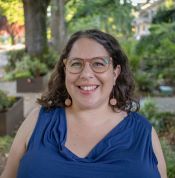
Becca Bornstein
Events & Office Coordinator
503-725-2896 | brebecca@pdx.edu
Rebecca is the Events & Office Coordinator for TREC, providing administrative support and managing logistics for TREC's events. She has a background in creative writing, and holds an M.F.A. from North Carolina State University. When she's not working, she likes to spend time reading and writing poetry, riding her bicycle, and snuggling with her cat.
 Joseph Broach, Ph.D.
Joseph Broach, Ph.D.
Research Associate
jbroach@pdx.edu
Website | Researcher Profile
Joseph Broach is a Research Associate with the Transportation Research and Education Center (TREC), an Instructor in the School of Urban Studies and Planning at Portland State University, and a Senior Researcher and Modeler at Metro (MPO). His work primarily focuses on transportation data, behavior, and modeling, and he helped design the Portland region's next-generation bicycle model in conjunction with Metro. Joe's research projects include Incorporate Emerging Travel Modes in the Regional Strategic Planning Model (RSPM) Tool, Transferability & forecasting of the Pedestrian Index Environment (PIE) for modeling applications, and Travel Mode Choice Framework Incorporating Realistic Bike and Walk Routes.
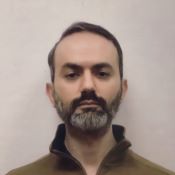 Basem Elazzabi, PhD
Basem Elazzabi, PhD
Senior Research Associate
elazzabi@pdx.edu
Basem is the head of programming and development for the PORTAL and BikePed Portal projects at TREC. He is responsible for maintaining and developing the database and the infrastructure of both projects. He also does various data analysis and visualization tasks. Basem received a PhD in Computer Science from Portland State University with a focus in database and data analysis. He also received his BS in Computer Science also from Portland State University. He has almost 20 years of experience in system analysis and development. His main interests are database systems, data analysis, distributed systems, and big data. His main research topics focus on how to facilitate data analysis for typical and non-technical data analysts. One of the main research topics that he works on is how to build the next generation data-analysis ecosystem in which institutions (government and private) can easily store their massive data and have easy access to data analysis tools to support and improve data-driven decision making.
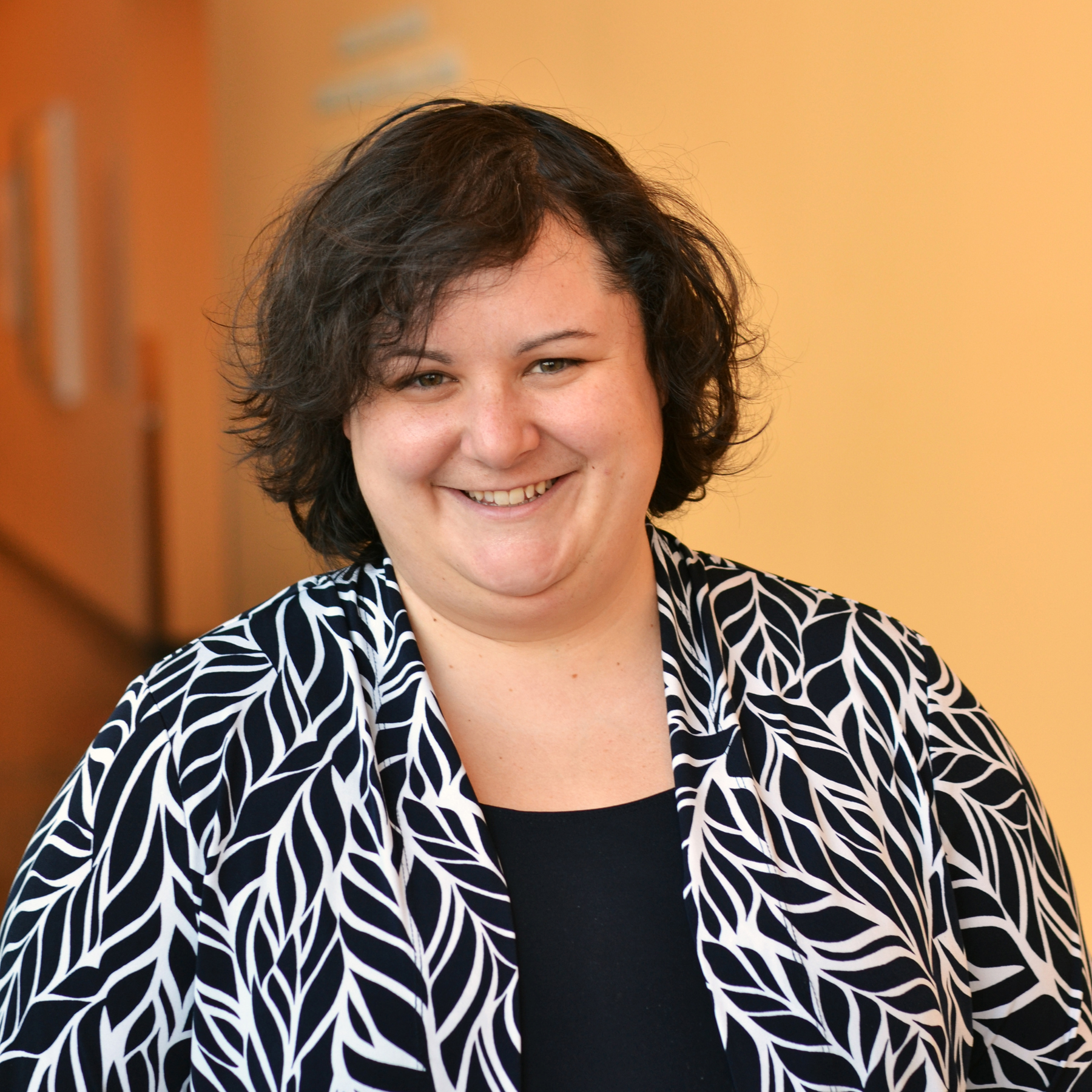
Lacey Friedly
Communications Coordinator
503-725-8545 | rlacey@pdx.edu
Lacey is the communications coordinator for TREC. She connects with researchers, writes articles, and documents (through pictures, videos, and model towns) the value of the transportation research being done at TREC and through the NITC program. Before TREC, Lacey was the acquisitions editor for Dark Discoveries magazine. She also managed the editing department at Ooligan Press, Portland State University's student-run publishing house. She graduated from PSU in 2013 with a master's in book publishing. In her spare time Lacey enjoys swimming, reading, and making stop-motion animation videos. she/her/hers
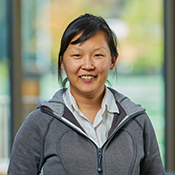
Tammy Lee, PhD
Transportation Data Program Administrator
503-725-2884 | leetam@pdx.edu
Tammy is working on a variety of projects for TREC, including documentation, data synthesis, analysis, and visualization supporting ongoing work with PORTAL and Bike-Ped Portal. Tammy received a BS in Genetics & Plant Biology from UC Berkeley before earning a PhD in Environmental and Natural Resource Sciences from WSU. Prior to joining TREC she worked as a data scientist for a political digital media consulting firm. When not working she's either hiding in the forest or experimenting in the kitchen.
 John MacArthur
John MacArthur
Sustainable Transportation Program Manager
503-725-2866 | jhmacart@pdx.edu
TREC Researcher Profile
Mr. John MacArthur is the Sustainable Transportation Program Manager at TREC at Portland State University and an instructor in civil and environmental engineering, teaching on new & emerging technologies in transportation. He is active in research related to sustainable and equitable transportation, particularly in the areas of emerging tech such as e-bikes, bike share, transit, and the relationship between transportation and public health. Mr. MacArthur is the Section Chair for Transportation Research Board’s AME00 Transportation and Society and a member of Innovative Public Transportation Services and Technologies (AP020). He received his BS in Civil Engineering from Lehigh University and a MS in Environmental Health Sciences from the School of Public Health at the University of Michigan.
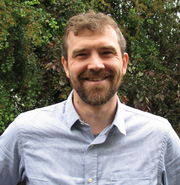
Nathan McNeil
Research Associate
503-725-8581 | nmcneil@pdx.edu
Researcher Profile
Nathan McNeil is a Research Associate at Portland State University's Transportation Research and Education Center. His research focuses on active transportation safety and travel behavior, emerging mobility and data sources, and how to make sustainable transportation accessible and easy for all people. Nathan received a master of urban and regional planning from Portland State University (PSU) and studied history at Columbia University as an undergraduate. Prior to PSU, Nathan worked for the Metropolitan Transportation Authority in New York City as a performance auditor where he evaluated capital programs and contractors.
 Saurav Kumar Singh
Saurav Kumar Singh
Adjunct Researcher
Holding a Master's in Computer Science and 6 years of experience, Saurav brings a deep proficiency in Python, machine learning, LLM, and cloud computing. His expertise extends to AI application development, where he has successfully contributed to Generative AI Projects, AI chatbots, and scalable cloud solutions.
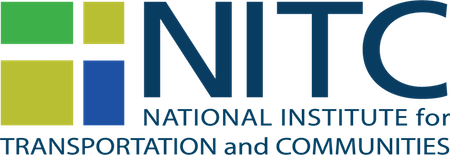

 Jennifer Dill, PhD
Jennifer Dill, PhD
 Joseph Broach, Ph.D.
Joseph Broach, Ph.D. Basem Elazzabi, PhD
Basem Elazzabi, PhD

 John MacArthur
John MacArthur
 Saurav Kumar Singh
Saurav Kumar Singh